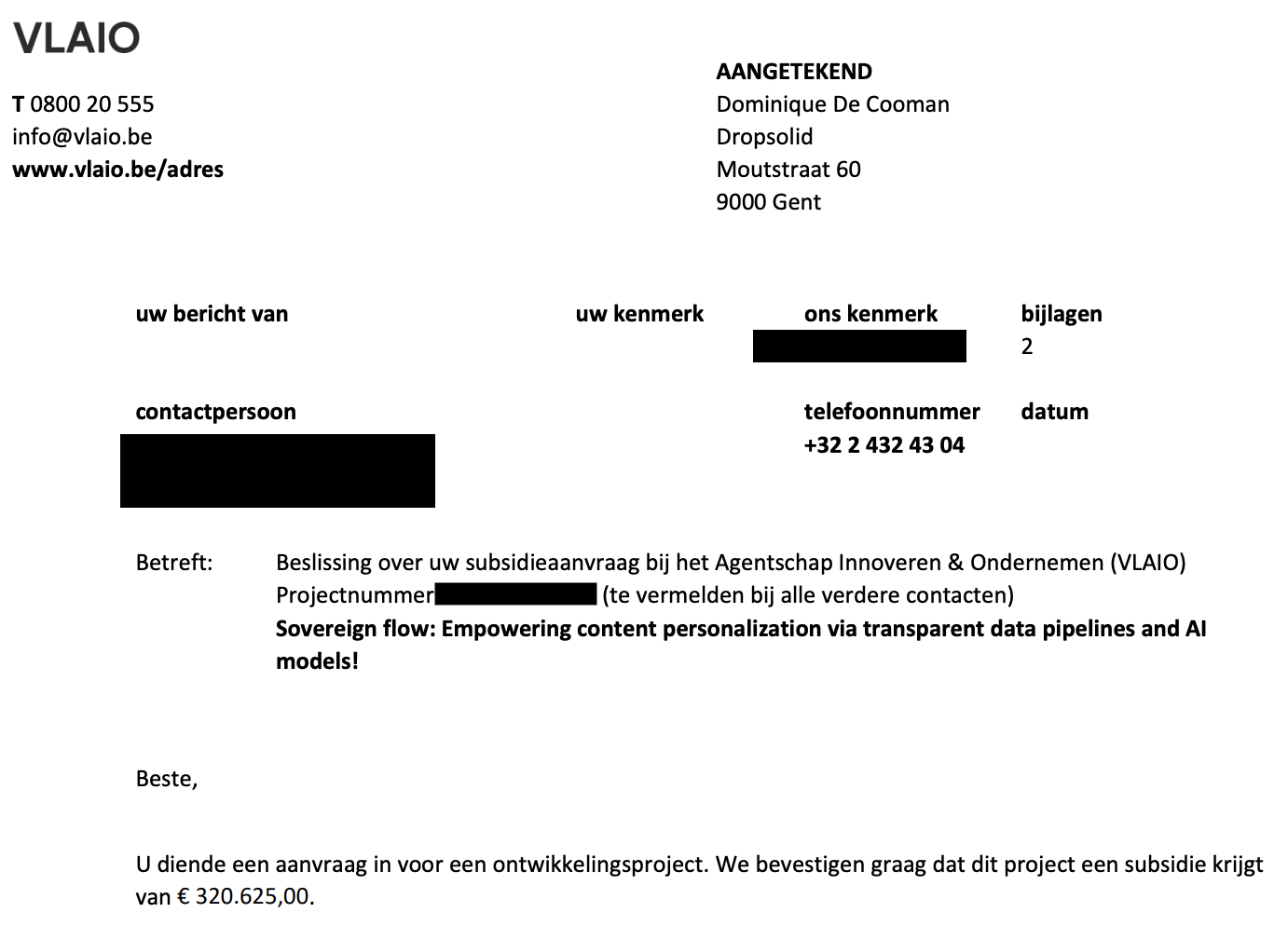AI is a hype. It sure is. AI delivers value. It sure does. But where, how, ...?
Dropsolid has been innovating with AI since 2019 and we had a bit of time to form our opinion on AI going beyond the hype.
Everyone is looking for business cases. We all should be using AI ... In boardrooms to management teams: "Why are we not using AI?" "Why are we not ahead of the competition using AI?" "We should be reducing costs with AI, we should be winning in the market with AI ... We should ..." You know :)
Companies like Dropsolid get many questions from their customers on how to help leverage the power of AI. Most service digital experience providers and IT companies are just implementing, adding a bit of AI to existing solutions. And we do this too. And that is already a big win. We have several useful business cases on the digital experience level.
- Most common business cases are:
Enhancing search experiences (we've been doing this even before the hype) Win? Saving time for users, less questions on support desks. Case with UZA from 2019. - Enhancing the content editor experience. Win? Webmasters and content managers win 20-30% productivity in maintaining content and digital experiences.
- Enhancing the end user experience, personalisation of the digital experience. Win? Customers spend more time on site, convert more easily and have an overall beter experience increase customer life time value.
- And of course operational efficiency. Perhaps the biggest driver.
But wait, thats it? That seems like just a faster horse and not the revolution that is being promised. A couple of tens of percentages extra in productivity, effectiveness, ...
At the moment that seems to be it. So yes there is a gain, yes it can make a lot of business processes more efficient and this makes it totally worth to invest in to AI and have it applied to all your IT systems. At Dropsolid we are already applying AI/ML onto our DXP since 2019 because indeed it produces better results for users, streamlines content and data management and saves a lot of time. Winning 10% in operational efficiency if you have 100M cost structure can be very significant. To do it you'll need to have your IT systems in shape. Bad content architecture, bad enterprise architecture, bad data architecture means no gains possible using AI. Everyone not having invested in their IT systems and choosing the easy life now will face hard life. They'll get out classed by their competition that did innovate.
However:
The next level, the 10x level requires something else. But the barriers are also 10x:
- Privacy
- Security
- Reliability
- Sustainability
- Sovereignty
- Safety
- Trustability
...
To name a few.
This is where innovation comes in. How do we deploy AI in a sovereign way, meaning how can we make sure organisations who handle a lot of data can control this data. Do we really want to think like the AI models condition us to think? Don't we want to use our own model of the world? Or at least a model that promotes the truth over political agenda's?
Do we really want to enter all our data into the OpenAI models?
Think about this: Amazon, Bol.com learned so much about the markets that they now can launch themselves into any category and completely take over the market. Just by gaining insights into consumer behavior, product management and commerce dynamic they know enough to completely control entire market categories. This enormous power is then being used to make retailers, manufacturers and distributors do exactly what they want. Sell more product through their platform. And although this is bringing a lot of convienience to the consumers, is it great for the suppliers? They don't know their customers anymore and get more and more dependent on these platforms. In the end they are just generating margin for big platforms.
Now imagine what happens if openAI models are enriched with every type of business process knowledge. Soon they'll become able to provide most B2B services, they'll be able to understand entire business categories. They'll just know how to run no matter what type of services company. This will be what Bol.com etc. did to commerce and retail to every type of services business. Imagine a lawyer using the AI models to gain a short term competitive advantage over competitors by gaining operational efficiency but in the long run allowing these models to bring to market a service that completely outclasses most law firms?
So we thought it would be good offer a more sovereign way to use AI to use in the context of your websites and digital experiences to address these issues. And we got a first research grant from VLAIO to investigate how we can deploy sovereign AI in the context of personalisation and Digital Experience platforms. We'll be investigating what is needed to make sure AI is used sovereign. That the models are fully open source and that they can we freely used.
We won't be using models like the Llama3 that only looks like open source. Check Bert Boerland's excellent post on this. Like a lot of companies, they use the open source argument to make sure the models get adopted. As Bert says: "So please, let’s stop mislabeling accessible code as “open source” when it doesn’t honor the true principles of open source." The same could be said about Open DXP. Please stop labeling open DXP if only the API's are open.
We thank our customers at the Flemish, German and EU governments in Believing Dropsolid can be an AI driven company. We hope that we can make an impact by adding sovereign AI to our really open DXP vision.
